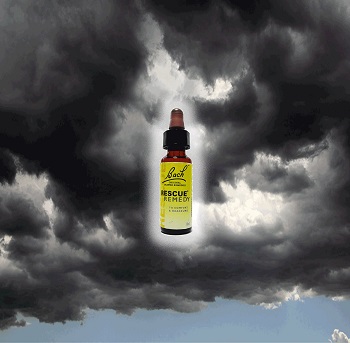Positive Health Online
Your Country

Depression and Homeopathy
listed in homeopathy, originally published in issue 219 - January 2015
Depression is an extremely emotive word and one that can easily be misinterpreted for words that are synonymous with it such as sadness, gloominess, misery, hopelessness or despair.
In my experience as a homeopath many people have consulted me for what they themselves have classified as depression, but with careful Socratic questioning they come to realize that their use of the word depression is a misconception and that they are in fact a little fed up and just by talking through their concerns they can easily return to their natural cheerful disposition with the aid of well selected homeopathic medicines.

The veil of depression can of course be hidden behind a façade. How many times have you asked a person how they are and have been given the congenial reply of ‘fine thank you’ whereas in fact this is not the case and they are hiding their true feelings so as not to burden you with their problems. To a person suffering with true depression, small problems can seem insurmountable, these problems manifesting and festering when they are alone with their thoughts preventing sleep and creating the need to blot out the problems. In order to do so they may turn to food, alcohol, medicinal and so-called recreational or mood enhancing drugs, sleeping tablets etc.
We should also be aware that physical illness such as influenza, medical drugs such as corticosteroids, even the oral contraceptive could play a part in inducing a state of depression. There is also the possibility of a genetic pre-disposition particularly in bipolar illness. External factors such as bereavement, job loss with its financial implications, being in receipt of bad news, slow recovery from an illness can also precipitate depressive illness.
Let us take a look at post-natal depression. This is a state of depression that comes on after the birth of a child, often called baby blues. A time mother having experienced the euphoria of becoming pregnant, may have suffered with debilitating morning sickness, seen her figure change shape to adjust to her growing baby, felt uncomfortable towards the end of pregnancy and during delivery circumstances dictated that her birthing plan to be radically altered. The new baby having been nurtured in the womb, will take time to adjust to its new surroundings while the mother learns to interpret the differences between the baby’s cries. Combine this with sleep disruption, breast or bottle-feeding difficulties and coping with everyday life situations, i.e. washing, ironing, shopping etc., it is a time when post-natal depression can set in. It is not only first-time mothers that may find themselves in this situation, but mothers with more than one child as they have to juggle getting older siblings to school etc. Supportive family and friends can be a great asset. The homeopathic medicine Sepia has been beneficial in situations like these when the symptom picture matches.
The clinical features of depression can range from mild sadness to black despair with insomnia, slowness of thought, inability to make decisions, ideas of guilt, unworthiness and self-blame. Anorexia, backache, constipation, pressure headaches, inability to muster the enthusiasm to undertake physical activity, restlessness and suicidal thoughts may be described by the person or observed by the clinician. I would add suppressed anger, unwillingness to get up out of bed and even hiding away from their loved ones to those features and when the term bipolar is used the person can suffer from morbid elation and hyperactivity in addition to the attacks of depression. In this situation it can be difficult for colleagues to be aware that anything is wrong until a crisis is reached. Extravagant spending is another aspect to be aware of as the person could be suffering from grandiose delusions.
If an underlying fear, unresolved grief of any other external factors listed above were discovered to be the reason for a person’s depression then a homeopathic medicine would be chosen that matches their symptoms. I would also recommend where appropriate certain nutritional supplements to offer additional support.
As a professional homeopath I would not suggest to anyone that they stop taking any prescribed medication; this must only be done with the support of a medically qualified doctor.
References
The Little Oxford Dictionary of Current English 6th Edition Clarendon Press.
Murphy, Robin ND, Nature’s Materia Medica 3rd Edition. 2006.
Murphy, Robin ND, Homeopathic Clinical Repertory, 3rd Edition. 2005.
British National Formulary BNF 53. BMJ Publishing Group and RPS Publishing. March 2007.
Macleod J, Ewards C, Bouchier I, Davidson’s Principles and Practice of Medicine 15th Edition, Churchill Livingstone. 1987.
Comments:
-
Les said..
Why no references to good quality peer reviewed studies in reputable journals?